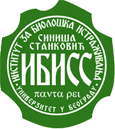Researchers from the Department of Physiology are supported by the Science Fund of the Republic of Serbia, Program IDEAS, for the project "Exploring New Avenues in Breast Cancer Research: Redox and Metabolic Reprogramming of Cancer and Associated Adipose Tissue", REFRAME, #7750238. Project will last for three years (2022-2025).
Abstract
 Redox and metabolic reprogramming are key hallmarks of neoplastic transformation that enable cancers’ adaptive behavior. These chief features are heavily dependent on the interactions between cancer cells and their microenvironment. In breast cancer, the principal cellular component of the tumor milieu is the adipose tissue. A growing body of evidence suggests that disruption of cancer-adipose interactions can halt cancer progression and therapeutic resistance. Exploring new research areas in cancer-adipose tissue cooperation is critical for understanding cancer progression and discovering novel therapeutic targets. Our recent work revealed that cancer-associated adipose tissue undergoes extensive redox regulation changes, strongly indicating the role of the master regulator of redox-driven metabolic reprogramming - Nuclear factor erythroid 2-related factor 2 (NRF2) in this process. However, the concept of cancer-adipose tissue redox coupling is in its infancy, and their implications for cancer progression remain to be elucidated. REFRAME aims to provide a mechanistic understanding of cancer-adipose tissue redox and metabolic reprogramming and its dynamics. We will reach this goal by building on our expertise in redox regulation and adipose tissue morpho-functional plasticity through the state-of-the-art analysis of human breast cancer and adipose tissues and studies involving in vitro 3D cell co-culture model and in vivo orthotopic mouse model of breast cancer. We will use the latest biochemical and molecular techniques, including gene silencing, transcriptomics, proteomics, metabolomics, respirometry and light, confocal, and electron microscopy. Laying down the groundwork for a novel adipose tissue-based approach in the study of metabolic reprogramming will make REFRAME a paradigm-shifting research in a systematic effort to exploit redox regulation as a promising target for precision therapy in breast cancer.
Redox and metabolic reprogramming are key hallmarks of neoplastic transformation that enable cancers’ adaptive behavior. These chief features are heavily dependent on the interactions between cancer cells and their microenvironment. In breast cancer, the principal cellular component of the tumor milieu is the adipose tissue. A growing body of evidence suggests that disruption of cancer-adipose interactions can halt cancer progression and therapeutic resistance. Exploring new research areas in cancer-adipose tissue cooperation is critical for understanding cancer progression and discovering novel therapeutic targets. Our recent work revealed that cancer-associated adipose tissue undergoes extensive redox regulation changes, strongly indicating the role of the master regulator of redox-driven metabolic reprogramming - Nuclear factor erythroid 2-related factor 2 (NRF2) in this process. However, the concept of cancer-adipose tissue redox coupling is in its infancy, and their implications for cancer progression remain to be elucidated. REFRAME aims to provide a mechanistic understanding of cancer-adipose tissue redox and metabolic reprogramming and its dynamics. We will reach this goal by building on our expertise in redox regulation and adipose tissue morpho-functional plasticity through the state-of-the-art analysis of human breast cancer and adipose tissues and studies involving in vitro 3D cell co-culture model and in vivo orthotopic mouse model of breast cancer. We will use the latest biochemical and molecular techniques, including gene silencing, transcriptomics, proteomics, metabolomics, respirometry and light, confocal, and electron microscopy. Laying down the groundwork for a novel adipose tissue-based approach in the study of metabolic reprogramming will make REFRAME a paradigm-shifting research in a systematic effort to exploit redox regulation as a promising target for precision therapy in breast cancer.
Participating Scientific and Research Organizations:
- Institute for Biological Research “Siniša Stanković”-National Institute of Republic of Serbia, University of Belgrade (IBISS)
- Faculty of Biology, University of Belgrade (BF)
- Faculty of Medicine, University of Novi Sad (MF)
- Institute of Life Course and Medical Sciences, University of Liverpool (ILCMS)
Project members:
Prof. Bato Korać, IBISS, Project leader
Prof. Aleksandra Korać, BF
Prof. Biljana Srdić Galić, MF
Dr Aleksandra Janković, IBISS
Prof. Vanja Peković-Vaughan, ILCMS
Dr Igor Golić, BF
Dr Mirjana Udicki, MF
Dr Marija Aleksić, BF
MSc Anđelika Kalezić, IBISS
MSc Zorka Drvendžija, MF
MSc Strahinja Đurić, IBISS
Technical assistants:
MSc Tamara Zakić, IBISS
MSc Marta Budnar Šoškić, IBISS
MSc Sara Stojanović, BF




